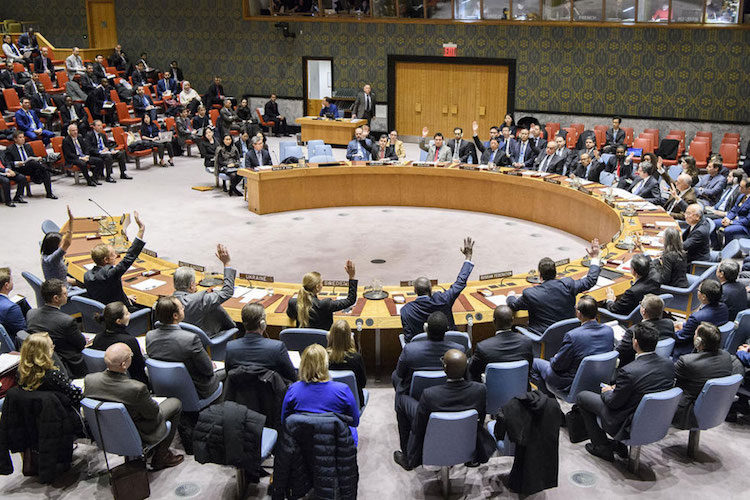By Thalif Deen
UNITED NATIONS (IDN) — A US-sponsored resolution to impose additional sanctions on North Korea for its multiple missile tests since January this year failed to get off the ground because of two vetoes by China and Russia.
The double vetoes reflected a growing new Cold War in international politics—and in the UN Security Council chamber—badly in need of a ceasefire.
A visibly disappointed US Ambassador Linda Thomas-Greenfield said, “it goes without saying that this is a disappointing day for this Security Council”.
“This Council has refused to take action in response to the unlawful launching of intercontinental ballistic missiles by the Democratic People’s Republic of Korea (DPRK or North Korea). I wish I could say I am surprised. We have been circulating a draft of this resolution for nine weeks. In that time, the countries vetoing this resolution have refused to engage on the text, despite our commitment to inclusivity and flexibility during consultations.”
Before today, she pointed out, “this Council had a remarkable record of consensus and collective action on this issue, going back many years. In 2016 and again in 2017, the Council unanimously responded to DPRK provocations with resolutions that impose sanctions and bring collective condemnation to a very real threat to peace and security”.
Following North Korea’s first nuclear test, the Security Council initially imposed sanctions on DPRK in 2006 and additional sanctions in response to further nuclear tests triggering economic hardships in the country.
Asked whether the failed resolution would embolden North Korea, she told reporters on May 26: “You know, my concern is the DPRK has been emboldened by the Security Council’s silence. Twenty-three tests since the beginning of the year. We have been silent, and that certainly has not stopped the DPRK from more tests, and we expect more.”
“So, the veto lets the world know who their supporters are, who has blocked the Security Council from taking actions before, but the DPRK has not responded to our silence.”
She argued that North Korea would certainly get a nod of approval from the veto of two of their friends. “But what they heard clearly from 13 Council members is that we want to take action, and we tried to take action, and we did send them a message that 13 of the 15 Council members condemned what they have done.”
China’s UN Ambassador Zhang Jun said the United States had failed to reciprocate North Korea’s “positive initiatives” during talks with the former Trump administration in 2018 and 2019.
The situation has developed to what it is today thanks primarily to the flip-flop of US policies and failure to uphold the results of previous dialogues, he said.
“The crux of the matter,” he said, “is whether they want to use the handling of the Korean peninsula issue on the chessboard of their so-called Indo-Pacific strategy”.
Russia’s permanent representative Vasily Nebenzia described the proposed additional sanctions against the DPRK as “not useful”.
“The growing pressure of sanctions on Pyongyang is very dangerous,” Nebenzia said, pointing out that the previous sanctions packages had a negative impact on the lives of its citizens.
At a press briefing following the failed resolution, the US envoy said: “The United States will not stand down as long as Kim Jung-Un continues his unlawful WMD and ballistic missile program and seeks to threaten regional and global security with more destabilizing ballistic missile launches.”
“We have consistently made clear that we seek serious and sustained diplomacy with the DPRK, but Kim Jong Un has refused to engage. We will continue to make such calls for the DPRK to engage with us diplomatically. At the same time, we will not hesitate to take further actions that are in the interest of our security and in the interest of our closest allies around the world,” she declared. [IDN-InDepthNews – 28 May 2022]
Photo: The UN Security Council meeting on non-proliferation of nuclear weapons and the intercontinental ballistic missile programme (ICBM) by the Democratic People’s Republic of Korea (DPRK). UN Photo/Kim Haughton (2017)


